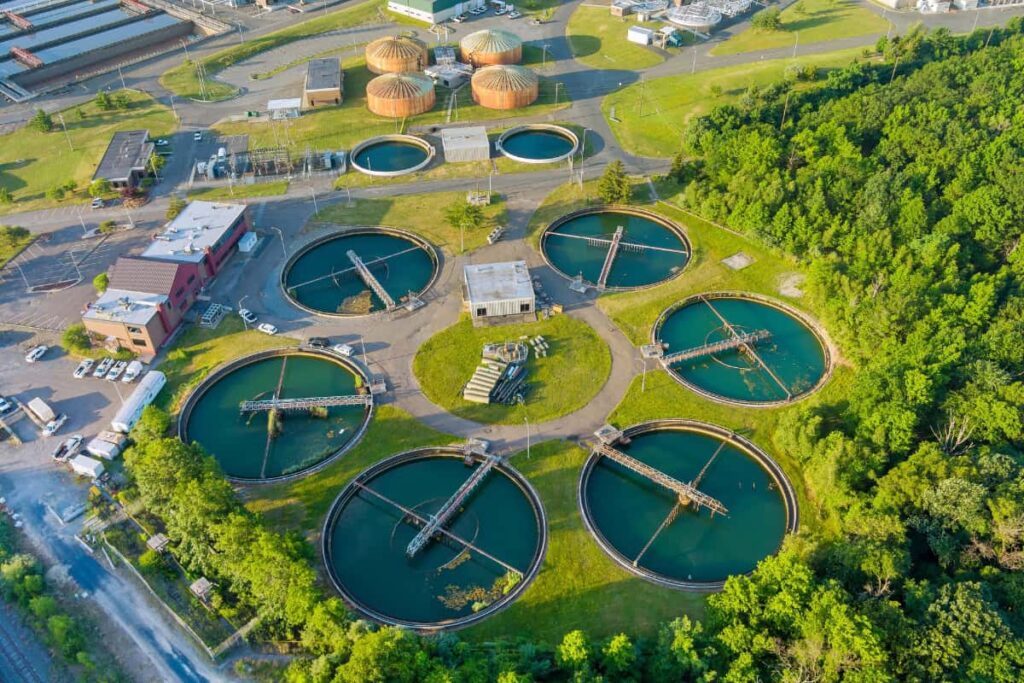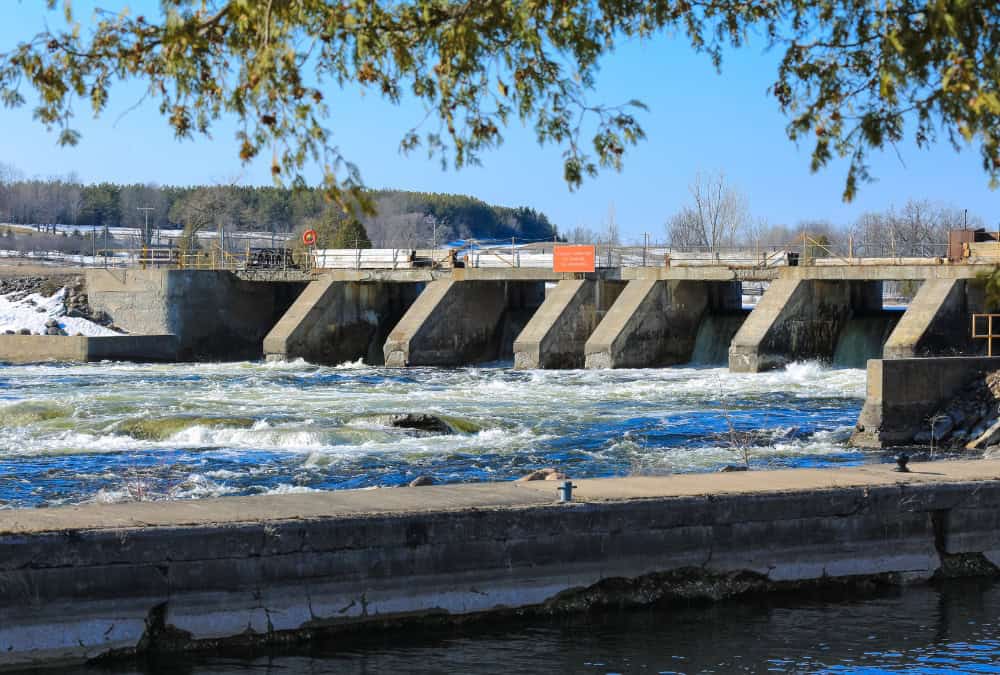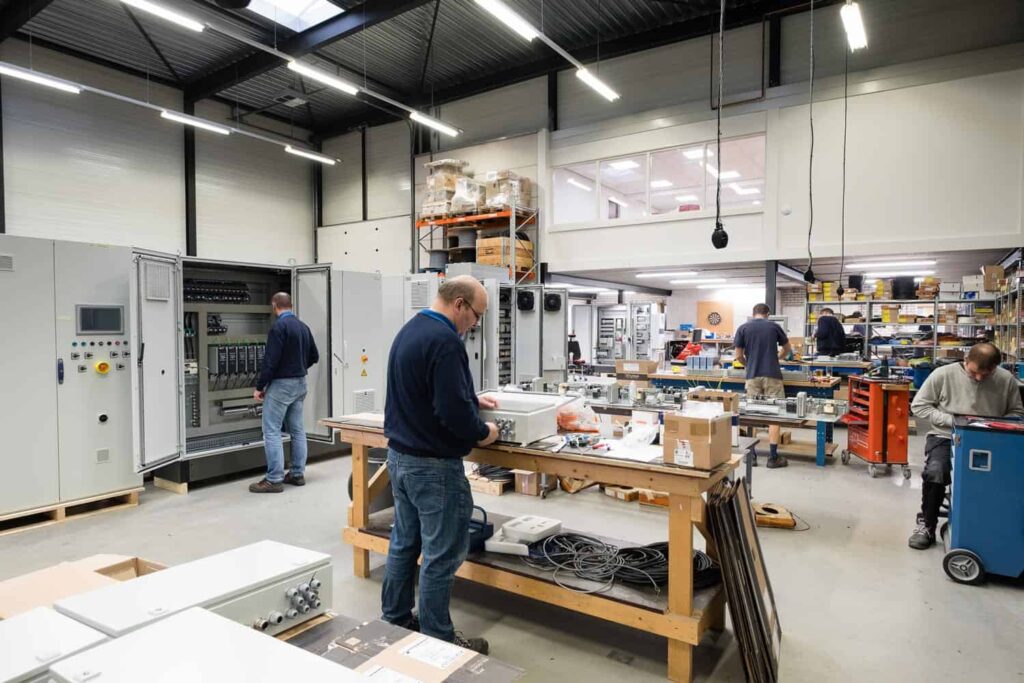Pump pumping station control panels water management
- Reliable and redundant
- In accordance with NEN standards
- Remote monitoring possible
Pump pumping station control panels for reliable water management
Stable water management requires control panels that operate reliably 24/7. Pump pumping station control panels for water management form the core of systems that regulate water levels, control sewage pumping stations and minimize flood risks. By applying modern panel construction techniques, redundancy and communication via protocols such as Modbus and Profinet, systems can be managed safely and efficiently. For water boards, municipalities and contractors in the infrastructure market, this is crucial to ensure operational reliability and continuity.
Paneelbouw Pioniers voor Machinebouw
Met de precisie van een horlogemaker en de souplesse van een acrobaat, zet Gerbin Control zich in voor het creëren van maatwerk elektrotechnische panelen voor de machinebouw. Als veerkrachtige speler in de paneelbouw, schakelen we snel, zonder in te boeten op kwaliteit of duurzaamheid. Stap in onze wereld van innovatie en ontdek hoe we uw machinebouw-projecten naar een hoger niveau kunnen tillen.
OPEN CALCULATIE
Krijg duidelijkheid in kosten en flexibiliteit in uitvoering
OFFERTE IN 5 DAGEN
Wij begrijpen de urgentie van uw projecten
VERDUURZAMING
Toegewijd aan een duurzamere toekomst
UL/CSA
UL / CSA certificering voor uw panelen in huis.
What are pump pumping station control panels water management?
A pump pumping station control panel is the central link in the automation of water management systems. The panel controls pumps, sensors and valves that ensure constant water levels in canals, ditches and sewer systems. During heavy rainfall or prolonged drought, the system must respond quickly and reliably. Therefore, these switchgears are designed for 24/7 operation, often with redundant features to prevent outages. Communication with SCADA systems enables real-time monitoring and fault diagnosis, allowing operators to take immediate action.
Important standards and guidelines
NEN-EN 61439 - Low voltage distributors
Pump pumping station control panels are covered by NEN-EN 61439, which ensures the safety and reliability of low-voltage switchgear. This standard prescribes how panel construction must be verified, including type and routine testing. For water management, this means that the panels must be resistant to short-circuit, overload and thermal loads.
NEN-EN 60204-1 - Safety of machinery.
Because pump pumping stations are often controlled by electric drives and motors, NEN-EN 60204-1 is also applicable. This standard deals with the electrical equipment of machinery and emphasizes safe wiring, emergency stop circuits and surge protection. This ensures that operators can work safely with the installation.
CONTACT US
Applications in industry
Pump pumping station control panels are widely used within:
- Water boards For regulating water levels in polders and canals.
- Municipalities For sewage pumping stations and wastewater management.
- Industrial sites Where process water must be drained or reused.
- Flood defenses and pumping stations for flood protection.
These applications require not only robust panel construction, but also integration with protocols such as Modbus TCP or Profinet to enable interfacing with central SCADA platforms.
Benefits of pump pumping station control panels
A professionally designed control cabinet for water management delivers multiple benefits:
- Reliability: redundancy in pumps and controls prevents downtime.
- Remote monitoring: fault reports directly visible in SCADA or via IoT protocols such as OPC UA and MQTT.
- Efficiency: Energy-efficient pump controls tailored to current demand.
- Safety: design in accordance with NEN 61439 and NEN 60204 ensures a safe installation.
- Documentation: delivery with declaration of conformity and test report, so that installation can be shown to meet requirements.
The process from design to commissioning
The process of a pump pumping station control panel involves several steps:
- Design: schematics and 3D layouts are created with EPLAN Pro Panel, including cable coding and component selection.
- Panel construction: Workshop assembly, including wiring, control components and redundant PLCs.
- Testing Phase: FAT (Factory Acceptance Test) to check functionality in advance and SAT (Site Acceptance Test) after installation on site.
- Commissioning: Integration into the overall water management system, interfacing with SCADA and transfer to the end user.
This structured process creates a control panel that is not only technically correct in construction, but also practical and safe to use.
Years of experience in the field of industrial automation
Efficiency and reliability in industrial automation
With Gerbin Control as your partner, you benefit from several specific advantages. We strive for reduced Total Cost of Ownership (TCO) and offer electrical components that meet the highest standards. In addition, we combine flexibility with competitive pricing, increase the efficiency of your systems and machines, and have an international network and UL/CSA certification.
Gerbin Control as your partner for pump pumping station control
Designing and building control panels for pumping stations requires specialized knowledge and experience in water management. Gerbin Control supplies customized panels that comply with NEN 61439 and NEN 60204 and are designed to meet the high demands of 24/7 availability. With redundant versions, robust housings and protocols such as Modbus and Profinet, we provide safe and reliable installations that communicate seamlessly with SCADA platforms.
Our approach goes beyond panel construction: we accompany the entire process, from engineering in EPLAN to FAT/SAT testing and on-site commissioning. This makes us a reliable partner for water boards, municipalities and contractors who strive for security, sustainability and efficient water management.
Want to know more about our solutions for pumping stations and water management? Contact Gerbin Control for advice or a customized quote.
Frequently asked questions about pump pumping station controls
What functions does a control panel for pump pumping stations have?
A control panel controls the operation of pumps, level sensors and valves in a pumping station. The panel monitors water levels, automatically switches pumps on or off and generates fault messages. It often includes functions for emergency operation, manual control and interfacing with a SCADA system so operators have remote insight into the plant.
How is redundancy applied in pump pumping station control?
Redundancy means that critical components are duplicated, such as by a second pump or a backup PLC. If a component fails, the backup facility automatically takes over. This is crucial for water management, because a downed pumping station can cause immediate risks of flooding or sewer overflows.
What IP rating is suitable for outdoor switchgear?
Pump pumping stations are often placed outdoors and are exposed to rain, dust and temperature fluctuations. Therefore, a minimum of IP54 or IP65 is usually applied, depending on the environment. For extreme conditions or splash zones, IP66 or IP67 may be required. This prevents water ingress and extends the life of the installation.
What is the test phase of a pump pumping station control panel?
Before delivery, panels are tested via a Factory Acceptance Test (FAT) in the workshop and a Site Acceptance Test (SAT) on site. This involves checking functions such as switching logic, fault messages and communication with SCADA. Only after successful completion and documentation is the system transferred to the client.
Can a pump pumping station control panel be linked to a SCADA system?
Yes, virtually all modern pump pumping station panels are interfaced to a SCADA system. This is done via protocols such as Modbus TCP or Profinet. This allows real-time reading of water levels, pump statuses and malfunctions. This enables central management of multiple pumping stations and increases the efficiency and reliability of water management.



